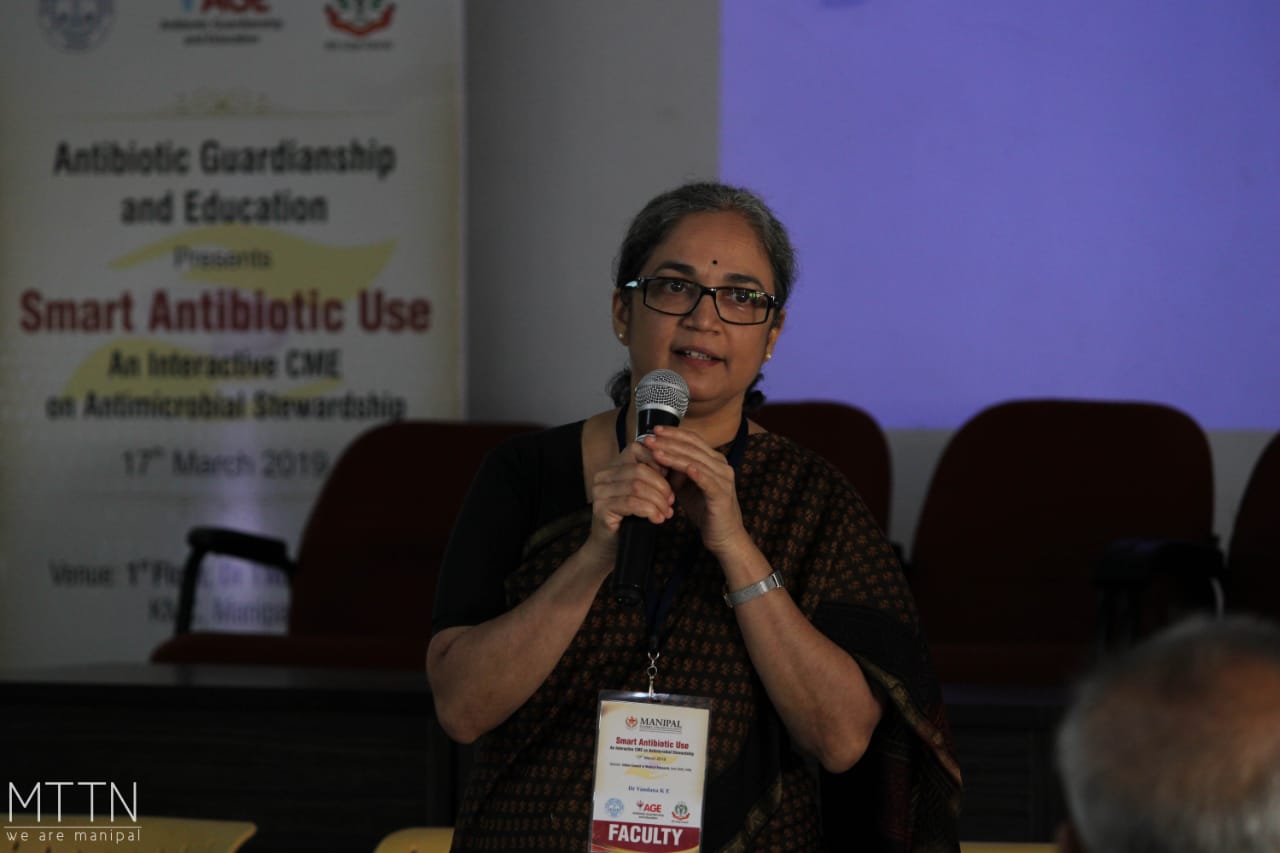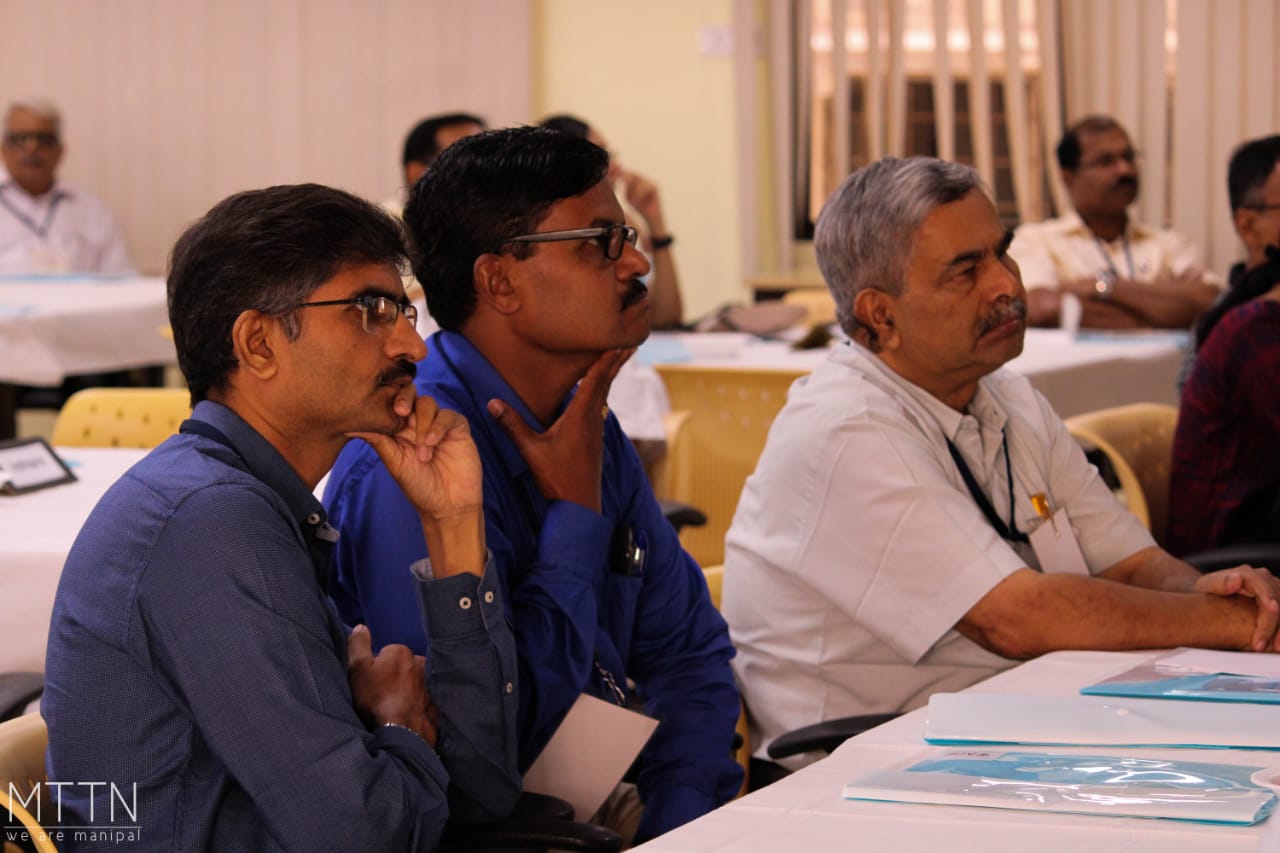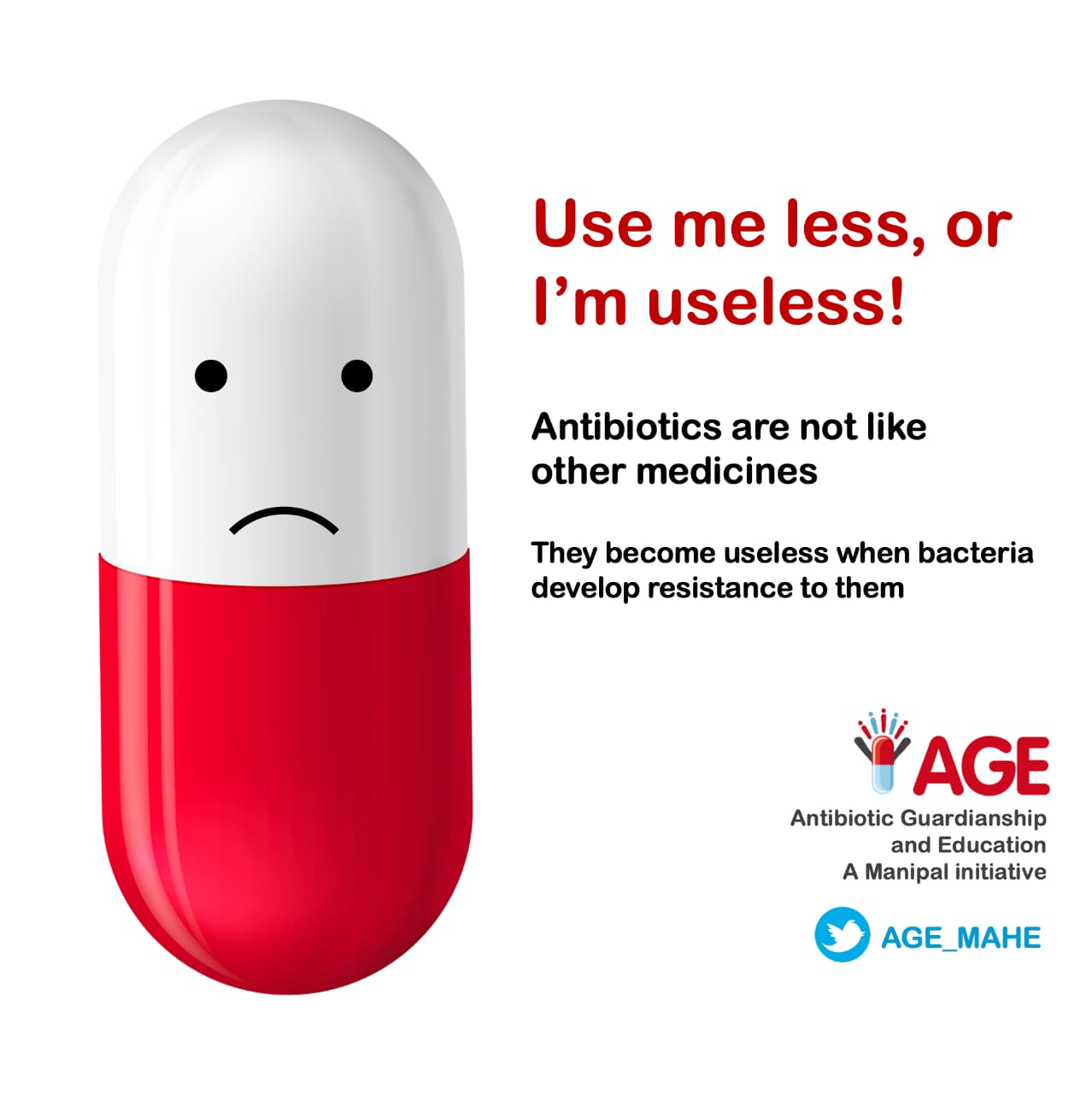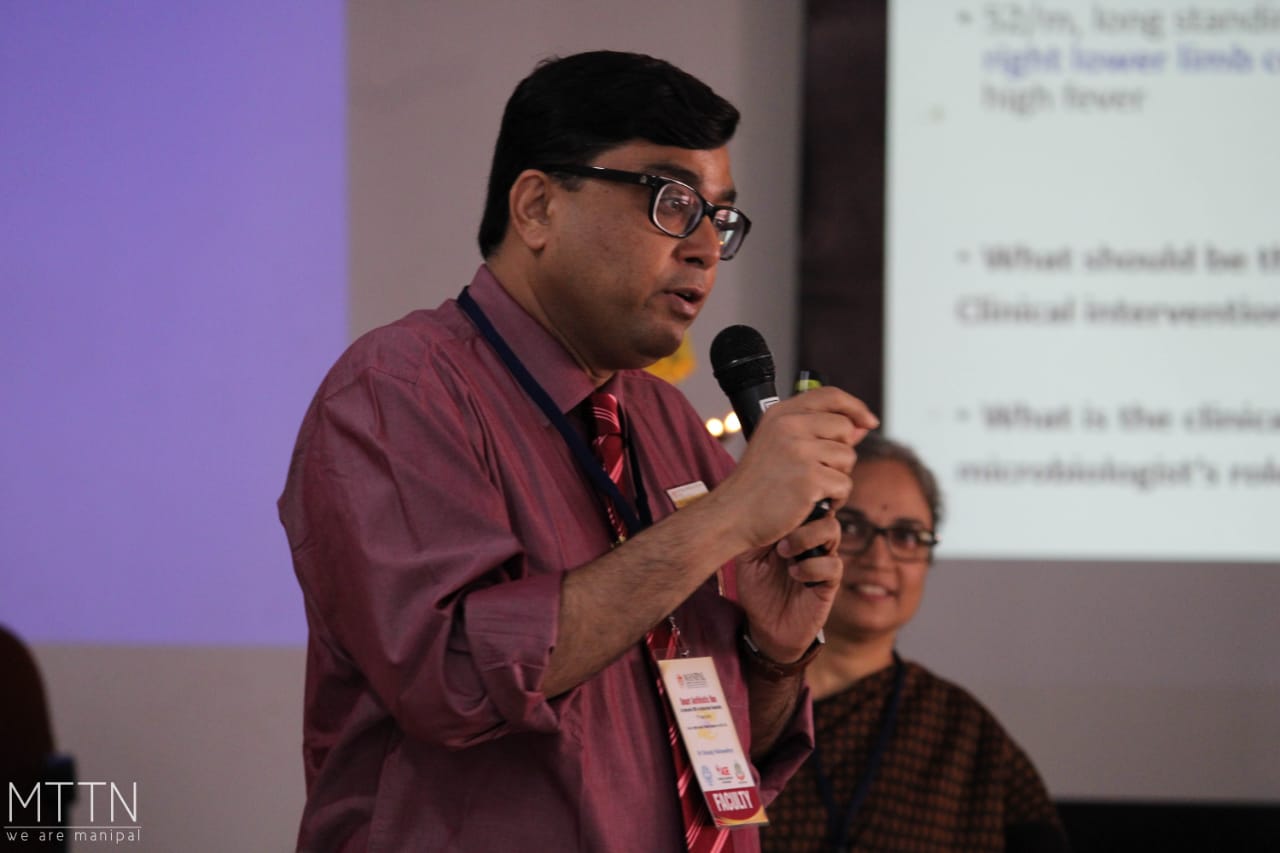
An otherwise hushed space, T.M.A. Pai Hall 1 saw speakers and delegates from varied medical and academic backgrounds break the ice on a pertinent issue in the medical fraternity: how can we cut down on antibiotic use to improve the efficacy of treatment of future illnesses?
A collaboration between Antibiotic Guardianship and Education (AGE), Kasturba Medical College and IMA Udupi-Karavali, this case-based interactive CME-workshop ran from 9:00 am to 5:00 pm on the 17th of March, 2019. As said by Dr. Vandana K E, “Anti-microbial resistance is a problem that is in fact the highest globally in India. To specifically target this problem, we’ve decided to start a dialogue on it as the first step.”
A first-of-its-kind event, resource persons included eminent experts of the field and panelists like Dr Chiranjay Mukhopadhyay, Dr Shashikiran Umakanth, Dr Muralidhar Varma, Dr Vandana K E, along with esteemed panelists like Krishnananda Mallya, Dr Madhusoodana Nayak, Dr Ramachandra L, Dr Dinesh Nayak and Dr Kishore Kumar Shetty.
While it remains irrefutable that antibiotics form an essential pillar of conventional medicine, this workshop sought to ask a question nagging the scientific community at the back of their minds: to what extent can one prescribe antibiotics and still stay within the bounds of rational treatment? In the words of Dr Bharti Magazine, “The idea behind this workshop is to prevent the erratic and indiscriminate use of antibiotics at three levels: students, pharmacists and medical practitioners. We felt that engaging with them, presenting them with real life scenarios and listening to their ideas, was the right way of going about this issue. Save antibiotics, just like you save water and electricity, for the future generations.”
The over-zealous use of antibiotics has led to a major world health problem: anti-microbial resistance. Simple, pedestrian infections have become more formidable and complicated to treat, owing to the rapidity with which pathogens develop antibiotic-resistance as their own exposure, often unwarranted, to antibiotics increases. As Dr Shashikiran Umakanth believes, “Antibiotics are not like other medicines; they lose their potency as you continually use them against living microbes that can and will develop resistance. Project it ten, maybe fifteen years from today, when our children have pneumonia and we won’t be able to counter it with antibiotics. It’s not about today, it’s about tomorrow.”
In specific syndromes and diseases, like urinary tract infection, acute gastroenteritis and upper respiratory infections, while a virus is to blame, antibiotics are wrongly prescribed and anti-microbial resistance results. Dr Chiranjay Mukhopadhyay reflected on the issue, “Ten years back, we would get one, maybe two, cases of antimicrobial resistance a month. Now? One or two such cases every day. A sixteen year old boy has a urinary tract infection, yet it’s incurable. Why? Because of anti-microbial resistance. Every big disease, cancer, tuberculosis, has a cure. These minor infections? They’re now an epidemic.”
One possible solution, as proposed during the workshop, is to improve upon diagnostic techniques to choose an appropriate antibiotic precisely, limiting unnecessary exposure to other antibiotics. As stated by Dr Muralidhar Varma, “Our approach is not no use of antibiotics at all, but smart use. The stakeholders in this industry are so many in number, from the government to pharmacists to doctors and finally, patients. Similarly, we too have adopted a multipronged approach.”
Various aspects of the same issue were discussed throughout the day in various panels at a plethora of levels, prompting the audience to rethink all that they believed about antibiotics.
Follow AGE_MAHE on Twitter for further updates on the activities of Antibiotic Guardianship and Education (AGE).
–Written by Mihika Antonia Dean





Leave a Reply
You must be logged in to post a comment.